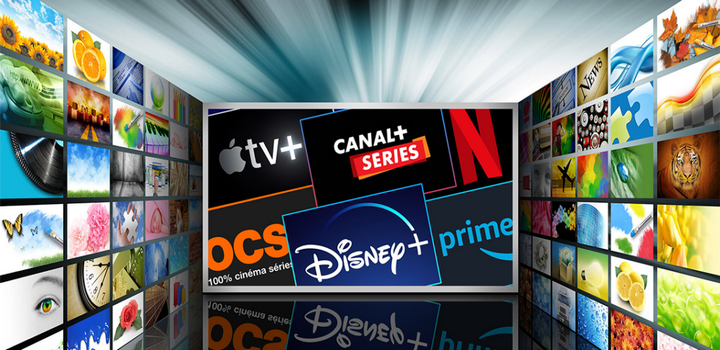In the age of rapid technological advancements, television viewing has undergone a significant transformation. One of the most notable developments in recent years is Internet Protocol Television (iptv nederland). Unlike traditional broadcasting methods, IPTV delivers television content via the internet, revolutionizing how we consume media. This article explores the evolution of IPTV, its benefits, challenges, and its impact on the future of television.
What is IPTV?
IPTV stands for Internet Protocol Television, a system that uses internet protocol networks to deliver television content. Instead of relying on traditional cable or satellite systems, IPTV streams content directly to users’ devices through broadband connections. This method offers a range of services, including live television, on-demand content, and interactive features.
Types of IPTV Services
- Live IPTV: Provides real-time streaming of television channels, similar to traditional broadcasting.
- Time-Shifted IPTV: Allows viewers to watch programs at their convenience, even if they were broadcasted live.
- Video on Demand (VOD): Enables users to select and watch content from a library of shows, movies, and documentaries whenever they choose.
- Catch-Up TV: Offers the ability to watch shows that aired previously, typically within a certain time frame after the original broadcast.
The Evolution of IPTV
Early Developments
The concept of IPTV emerged in the late 1990s when internet bandwidth started to improve significantly. Early systems were limited and primarily used by telecommunications companies to provide supplementary services. However, the launch of higher-speed broadband and advances in compression technologies, such as MPEG-4, paved the way for widespread adoption.
The Rise of Streaming Services
The 2000s marked a turning point for IPTV with the emergence of popular streaming platforms like Netflix and Hulu. These services leveraged the internet to deliver on-demand content, shifting viewer expectations and preferences. As a result, traditional television providers began investing in IPTV solutions to stay competitive.
Technological Advancements
Today, IPTV leverages various technologies, including adaptive bitrate streaming, which adjusts video quality based on the user’s internet speed, ensuring smooth playback. Additionally, the integration of artificial intelligence (AI) has enabled personalized content recommendations, enhancing user experience.
Benefits of IPTV
Cost-Effectiveness
IPTV often provides a more cost-effective solution compared to traditional cable subscriptions. With various pricing models, including pay-per-view and subscription options, users can select plans that suit their viewing habits and budgets.
Flexibility and Convenience
One of the key advantages of IPTV is its flexibility. Viewers can access content on various devices, including smart TVs, smartphones, tablets, and laptops, allowing them to watch their favorite shows anywhere and anytime. This convenience caters to the modern viewer’s lifestyle, which often involves multitasking and on-the-go consumption.
Interactive Features
IPTV platforms often come with interactive features that enhance the viewing experience. Users can access additional content, such as behind-the-scenes footage, reviews, and social media integration, providing a more immersive experience.
Diverse Content Libraries
IPTV services typically offer extensive libraries, featuring a mix of local, national, and international content. This diversity allows viewers to explore genres and shows that may not be available through traditional cable.
Challenges Facing IPTV
Despite its advantages, IPTV faces several challenges:
Internet Dependency
IPTV relies heavily on stable and fast internet connections. In regions with limited broadband access or slow speeds, users may experience buffering or low-quality streams, hindering the overall experience.
Regulatory Issues
The rapid growth of IPTV has raised regulatory concerns, especially regarding copyright and licensing. Many IPTV providers face legal challenges for streaming content without proper agreements, leading to ongoing debates about content ownership and distribution rights.
Competition with Traditional Broadcasting
While IPTV offers a modern alternative to traditional television, it faces stiff competition from established cable and satellite providers. Many consumers remain loyal to their cable subscriptions, partly due to the perceived reliability and familiarity of traditional services.
The Future of IPTV
The future of IPTV looks promising, driven by continued advancements in technology and changing consumer behaviors. As internet infrastructure improves globally, more users will likely adopt IPTV solutions, leading to further innovation in content delivery and user experience.
Integration with 5G Technology
The rollout of 5G technology presents new opportunities for IPTV, allowing for faster streaming speeds and improved connectivity. This advancement can enable higher quality streaming and support more interactive features, enhancing user engagement.
Emergence of Niche Content
As the IPTV market matures, we can expect the emergence of niche content providers catering to specific audiences. This trend will likely diversify the available content, making it easier for viewers to find shows that resonate with their interests.
Conclusion
IPTV represents a significant shift in how we consume television content, offering a flexible, cost-effective, and interactive alternative to traditional broadcasting. While challenges remain, the continued evolution of technology and changing viewer preferences suggest that IPTV is here to stay. As we move forward, it will be fascinating to see how IPTV shapes the future of entertainment and media consumption.



